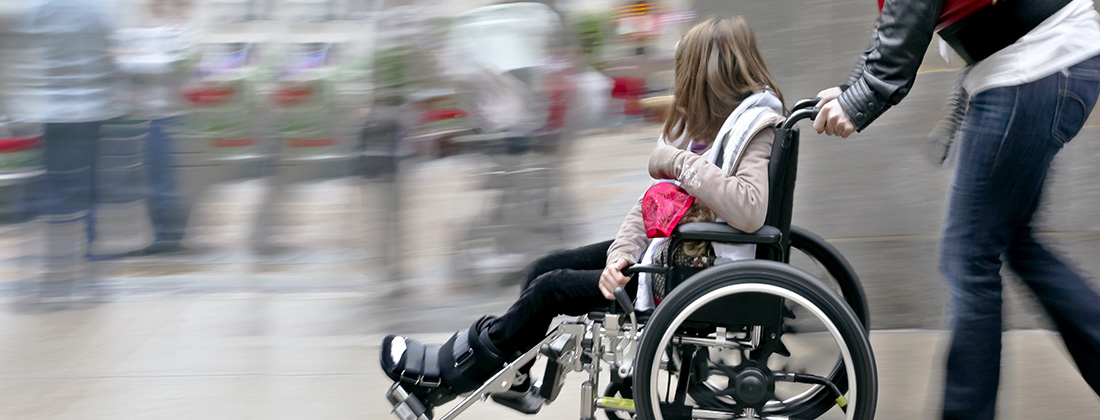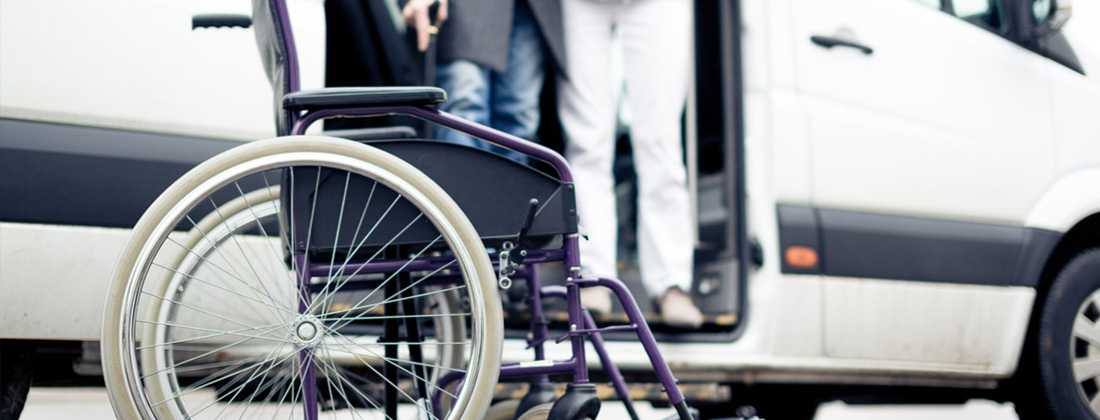Top 5 Ways Interacting with the Disabled is Helping You Grow

Interacting with the disabled is never easy – not because someone’s (in)visible disability is making us uncomfortable but because people are usually trying to do the right thing, except that – they don’t know how.
What Do You Mean?
Usually, out of empathy and good manners, people try to give their best not to attentionally hurt anyone with a physical, intellectual or sensory disability. Unfortunately, most of them end up doing just that because they adopt a very patronizing and condescending attitude towards their interlocutors.
This often happens due to their lack of knowledge on how to talk with a disabled person without hurting their feelings or coming across as superior. Typically, everyone will tell you that socializing with the disabled should be no different than your other social interactions, but for those who aren’t familiar with a particular disability, such an attitude doesn’t always go as planned.
Read More: Top 4 Ways Interacting with the Disabled Is Helping You Grow

What’s Usually Happening?
AC MedTran’s team of trained counselors has worked with people with a disability for a number of years and – in interacting with the patients as well as with their friends and family – we have witnessed people break down emotionally, completely hopeless, desperate, and clueless about the way they should act around those they love.
On the other hand, there have also been many cases of families going from very uncomfortable interactions to building healthy, beautiful relationships thanks to being open to personal growth, adaptation, and – ultimately – change.
In such difficult situations, problems like where can I find non emergency transportation, how to get a wheelchair accessible taxi near me, is medicar reliable, and similar become irrelevant because the focus is on self and rebuilding relationships.
Read More: Make Life Better for Your Disabled Partner by Doing These 5 Things
In that manner, here are 5 ways people happen to grow in interacting with the disabled (maybe you’ll find the strength in yourself to do the same):
You Become Compassionate and Understanding
In communicating and interacting with a disabled person, you need to understand their disability first before “making your move.”
If you are talking to someone with a mental/sensory/intellectual disability be patient enough to let them finish a sentence, even if it lasts longer than anticipated. Try not to send rude body signals (rolling your eyes, sighing, getting angry, etc.) or verbal ones (i.e., hurrying them up or finishing their sentences). Asking about their disability is okay, as long as you are respectful of it. How to show kindness to people with intellectual and developmental disabilities mustn’t be an issue.

You Learn To Put Your Ego Aside
Furthermore, if it happens that you cannot understand the person you are talking to, ask them to repeat the thing or consult with someone close to them to help you understand. Always double-check what you think you heard. Don’t yell or curse at them, or spank them because you are eager for them to speed things up. Any form of physical or emotional abuse is out of the question! Understand that the disabled aren’t doing things to spite you. It’s who they are, and you need to adjust to them. If things were the other way around – they’d do the same for you.
Read More: 4 Career Areas for People Who Are Physically Disabled
You Learn Patience
These days, everything’s hectic – from the way we eat breakfast to the way we date and close business deals. And, for the most part, that works fine. However, for the disabled – this pace is impossible. Not because they don’t want to honor it but because they can’t.
In communicating with a disabled person, whether they’ve got a physical or mental disability, patience is crucial. Although it will take you time to adjust to THEIR pace (instead of forcing them to adapt to yours) you’ll finally become comfortable with it. Not everything has to be done NOW – and the people who CAN’T do things NOW are the best to learn from.
You Learn to Put Others First, Sometimes
For everyone who’s in regular communication with a person with a disability, things drastically change from “me” to “you.” Naturally, the fact a disabled person is a part of your life doesn’t mean putting yourself second at all times; it only means adapting to the circumstance, putting yourself in the disabled’s shoes for a second and growing to understand what they may be feeling like.
Keep being a priority to yourself but try not to be egocentric about it. If you are helping a disabled person, help because you want to. Don’t ever downplay their disabilities or constantly remind them that you are helping. Instead of saying “See what I’m doing for you!” or “You are so lucky to have me as your friend/spouse/etc.” say something more compassionate like “I am so happy we’re doing this together and that I can help.” The person you are helping KNOWS you are helping and they’re grateful. It’s just your ego that needs a positive affirmation of your “good deed,” isn’t it?
Read More: Things to Consider When Interacting with People with Disabilities

You Learn to See the Bigger Picture
Not all disabilities are visible, and you’ll learn that in time. One of the most common things that happen is people getting angry with someone parking in the handicapped spot while looking able-bodied. The next thing they’d do is confront them only to learn that the person did actually have a disability, although not one many could see. Sometimes called “invisible disabilities,” these disabilities are still problematic for the people living with them. The best attitude to adopt is to be kind, compassionate and considerate in communication with everyone.
Someone who needed a cane yesterday may need a wheelchair today. That doesn’t mean they are faking. There are good days and bad days and, as someone who needs neither a cane nor a wheelchair, you need to learn to understand these things.
A Few More Words…
Interacting with the disabled is helping you grow in more ways than you know. Apart from becoming a better, more patient and a more compassionate individual yourself, you are also setting a great example for your little ones and everyone around you. Until AC MedTran’s next blog post: stay compassionate and contact AC MedTran at 847.792.1212 for your next non emergency medical transportation!
